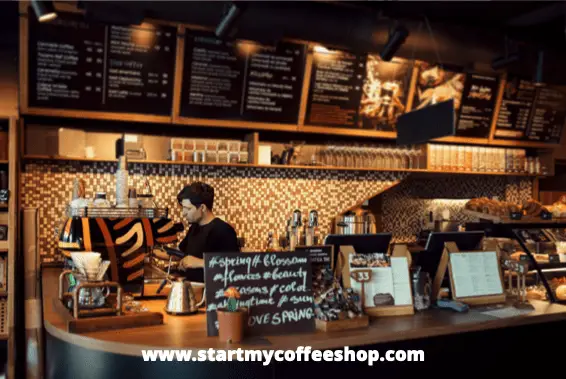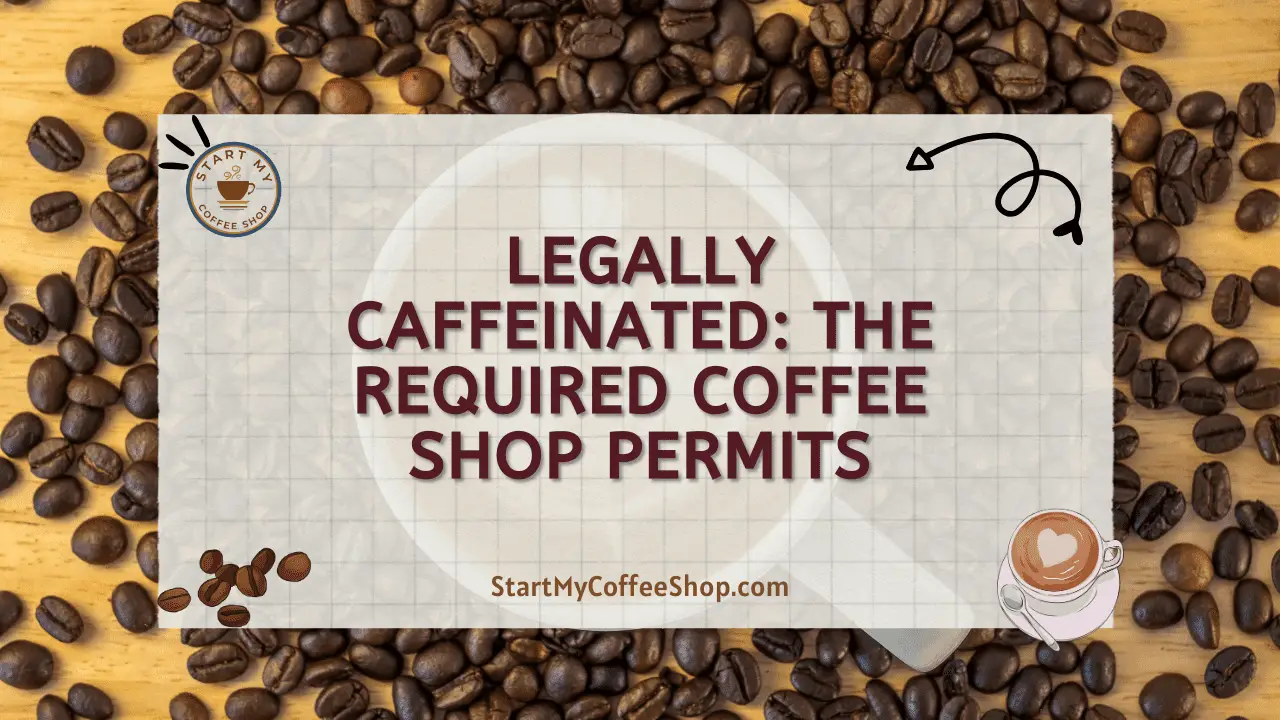A lot of people dream of starting their own business. People dream of being their boss. In your case, you have chosen to run a coffee shop. This dream is laudable, but dreams can go wrong without the knowledge needed to fulfill them. An unfortunate fact is that most small businesses fail within their first two years. There’s rarely one specific reason businesses fail. It’s often a combination of factors. I’m going to itemize some reasons coffee shops fail so you can learn from them and improve your odds of success.
The six reasons why coffee shops fail are:
-
Failure to do research
-
Failure to heed research
-
Trying to rip off the competition
-
An oversized menu
-
Bad Management
-
Bad Food/Drink
Failure to do research
Before you start making significant investments in real estate and equipment, you need to do research. While reading articles like this one is an integral part of your research, there’s more information you need to get.
Much of this information is specific to your local area, so you probably won’t find it in an article like this. I’ll list some questions you should be asking. What’s the prevailing wage for workers in your area? What equipment will you need and how much will it cost? Are there ways to reduce those costs? Where is the best real estate for a new coffee shop in your area? What licenses do you need, and where do you get them? If you have an idea for a specialty concept, what will the cost of implementing that concept be?

Those are just the general questions. I find that a lot of struggling businesses don’t do proper market research. A lot of people think market research requires them to hire high-priced firms. Market research can be as simple as looking at what the competition is doing (or, in some cases, not doing). Look at what food they’re serving. Look at the foot traffic or lack thereof. What is drawing people to that cafe? If no one is coming, why not?
The Internet can be helpful for market research too. A lot of the information you can use is public. You can find things like the demographic information of the area you intend to serve, for example. That information can help you develop your core concept.
Another good place to look for information is trade shows, or failing that, trade magazines. They often have information on the latest trends and the latest products that are selling well (and the products that are best avoided). Keeping abreast of the happenings in your industry is essential for any business owner.
Failing to Heed Your Research
Some stories I’ve heard from business owners who had to close down had a common thread: Stubbornness. They had the “If you build it, they will come” mindset. However, once the novelty of their business wore off, people stopped coming. Life isn’t like the movies. Sometimes, if you build it, they won’t be interested.
If your research tells you that you’re in an area where the clientele is older or not into video games, it’s probably a bad idea to open a video game cafe, for example.
There is also the chance that the research says you don’t have the market for a cafe in your area. Cafes are a tough market, and getting in it requires you to compete against many big and small competitions.
Trying to Rip Off the Competition
Some people see what the competition is doing and think they can do the same. Some businesses even go as far as ripping off concepts and drinks with some minor variations. This is a bad idea.
For starters, it creates customer confusion. Cafes often rely on word of mouth, but customers may not always remember the exact name of the cafe they want to tell their friends about. If your place is a carbon copy of another cafe, chances are the original business will get the recommendation intended for your business.
Secondly, customers don’t often take to copies well. Your business will always be compared, often negatively, to the original. Your copy of the specialty drink from the cafe up the street will just be seen as a worse version of that, and people will be encouraged to visit your competition.
There’s the more significant issue of intellectual property. Intellectual property isn’t just for the tech and entertainment industry. It applies to anything someone creates, such as recipes. If your competitor finds out that you’re copying their recipe, they could take you to court. That would be an expensive process.
It may be tempting to copy a poorly performing cafe’s concept because you think you can do it better, but that’s a bad idea too. If a cafe’s concept is failing, it’s probably for a good reason. Copying off a failing student was a terrible idea in school. Copying off a failing business will have similar results. Overall, it’s best to go with your concept.
An Oversized Menu
You can’t be all things to all people. Some cafes think they can attract customers with extensive, elaborate menus with everything they wish to get at a cafe. The thing is, food is expensive. If you have a big menu, you’re going to be spending big money. If that extra food doesn’t sell, that’s lost profit.
Big menus can overwhelm customers and cause choice paralysis. This can create long lines and make your cafe less efficient. If you’re planning on using online ordering through services like Grubhub, the big menu can be hard to scroll through. Most people end up getting the last thing they ordered just to save time.
 Large menus also make it hard to distinguish yourself. Many cafes brand themselves with signature drinks, pastries, and sandwiches. If you have a menu the size of a novel, then you don’t have a good brand beyond “That one cafe with a big menu.”
Large menus also make it hard to distinguish yourself. Many cafes brand themselves with signature drinks, pastries, and sandwiches. If you have a menu the size of a novel, then you don’t have a good brand beyond “That one cafe with a big menu.”
Big menus are also a problem for employees. Employees have to be trained to make everything on the menu with the expectation that someone will order it. Big menus will make that training take longer, and there’s a high probability something will be forgotten. Plus, big menus with lots of complex items slows things down in the kitchen and slows down the baristas.
While it’s important to have variety, there is such a thing as too much of a good thing.
Bad Management
You need employees to run your cafe. Your employees will need to know how to make your drinks and food. They also need to know how to act in front of customers. Most employees will pick up on this relatively quickly. But there are people who will take advantage of an employer who doesn’t have a backbone. You have to have high standards and hold your employees accountable for not meeting them. This is especially true when it comes to food and sanitation, as failing to adhere to the regulations regarding them can get your cafe shut down.
Sometimes, that may mean firing that employee you like as a person but may not be working out as an employee. It may mean having to be the bad guy and calling a staff meeting, and chewing out employees. That’s life as an employer.
That said, you should make these standards clear from the outset. Nothing is more annoying for an employee than being yelled at for doing something they didn’t know was wrong. So be sure your expectations are clear from the start.
Check out our management tips HERE.
But be sure not to go too far in the other direction. Overly strict managers or managers that are aggressive rather than constructive can ruin employee morale. It can also ruin efficiency when an employer is constantly coming out to micromanage.
Like everything in life, management is about balance. You can’t let your employees walk all over you, but you can’t treat them poorly either. You should also make sure to reward excellence at work too.
Bad Food/Drink
 Whether it’s at a fancy restaurant or at a cafe, one thing is true about eating out: Customers go out to eat to get something better than what they can get at home. As a tradeoff, this means they’re spending more money than they would by making coffee in the coffeemaker and getting a microwaved pastry at home.
Whether it’s at a fancy restaurant or at a cafe, one thing is true about eating out: Customers go out to eat to get something better than what they can get at home. As a tradeoff, this means they’re spending more money than they would by making coffee in the coffeemaker and getting a microwaved pastry at home.
If your food is bad, they will go elsewhere, and they will be sure to tell their friends, especially if your food gets them sick. With social media and review sites like Yelp, word spreads fast. So be sure your customers have a good experience.

Frequently Asked Questions
Avoid giving out too many things for free. It’s fine to offer Wi-Fi to customers, but you don’t want to become the place people can hang out and not buy anything.
Delegate. I saw a cafe I frequented fail because the owner didn’t delegate. He tried to do everything by himself. Somehow, he managed to stay in business for years, but it cost him his marriage; he eventually burnt himself out and ended up closing the business. Running a cafe is a major undertaking, and you can’t do it all alone.
To learn more on how to start your own coffee shop checkout my startup documents here
Please note: This blog post is for educational purposes only and does not constitute legal advice. Please consult a legal expert to address your specific needs.

Hi! I’m Shawn Chun
My adventure in coffee began when I first launched my first coffee shop back in the early 2000s. I had to figure out so many things on my own and to make it worse within 2 years of opening two large corporate coffee chains moved in just blocks away from me!
As I saw smaller and even some larger coffee shops in the neighborhood slowly lose customers to these giant coffee chains and slowly close up shop, I knew that I had to start getting creative…or go out of business.
I (like you may be) knew the coffee industry well. I could make the best latte art around and the foam on my caps was the fluffiest you have ever seen. I even had the best state-of-the-art 2 group digital Nuova Simonelli machine money could buy. But I knew that these things alone would not be enough to lure customers away from the name brand established coffee shops.
Eventually, through lots of trial and error as well as perseverance and creativity I did find a way to not only survive but also thrive in the coffee/espresso industry even while those corporate coffee chains stayed put. During those years I learned to adapt and always faced new challenges. It was not always easy, however, in the end, I was the sole survivor independent coffee shop within a 10-mile radius of my location. Just two corporate coffee chains and I were left after that year. All told the corporate coffee chains took down over 15 small independent coffee shops and kiosks and I was the last one standing and thriving.
Along the years I meet others with the same passion for coffee and I quickly learned that it is not only “how good a barista is” that makes a coffee shop successful, but the business side of coffee as well.
Hence why I started this website you are on now. To provide the tools and resources for up and coming coffee shop owners to gain that vital insight and knowledge on how to start a coffee shop successfully.
Stick around, browse through my helpful blog and resources and enjoy your stay! With lots of LATTE LOVE!
Shawn






